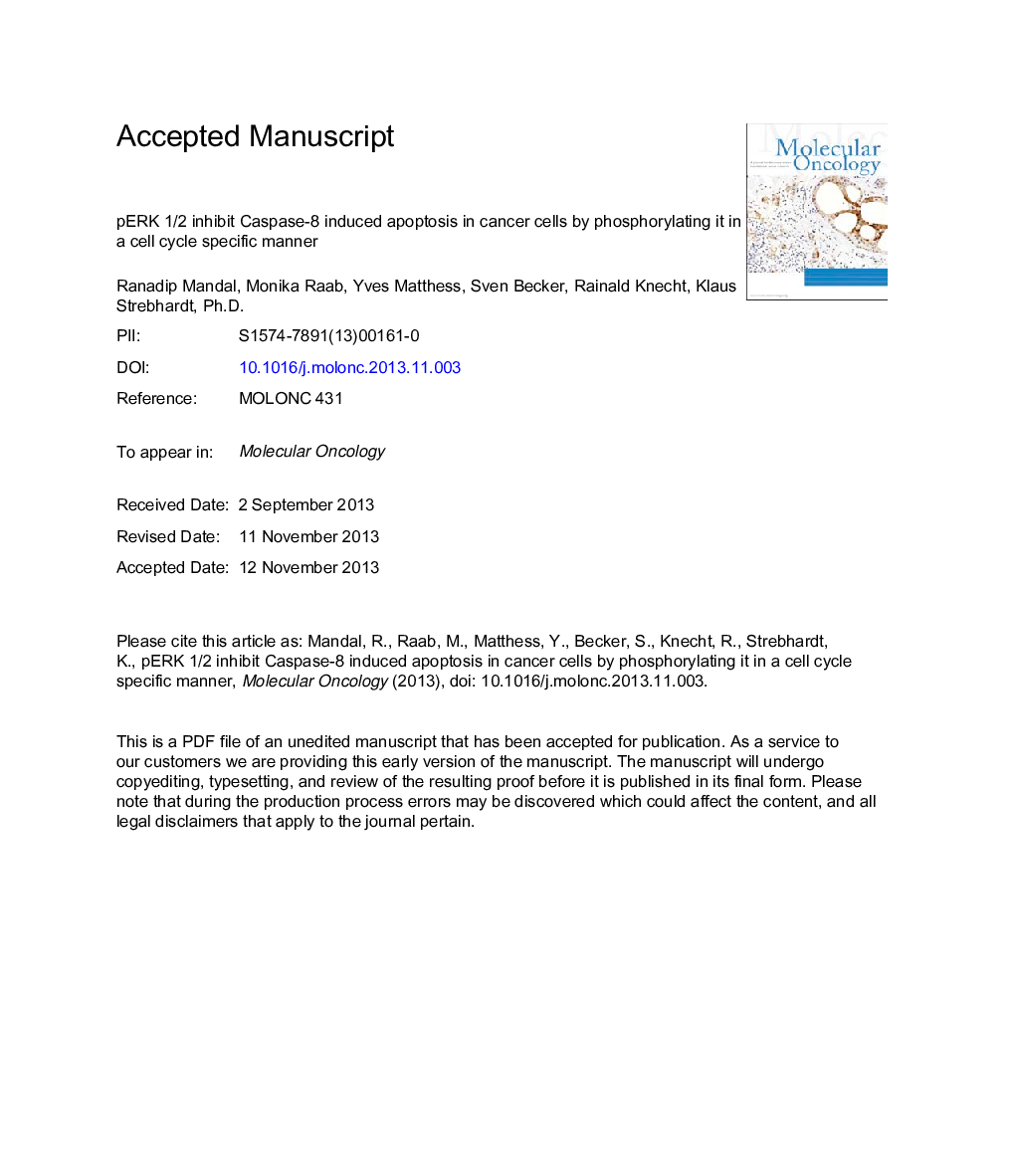| Article ID | Journal | Published Year | Pages | File Type |
|---|---|---|---|---|
| 10914744 | Molecular Oncology | 2014 | 46 Pages |
Abstract
ERK 1/2 are found to be hyperactive in many cancers. Active ERK 1/2 (pERK 1/2) are known to protect cancer cells from undergoing death receptor-mediated apoptosis, although the mechanism(s) behind this is poorly understood. Through in vitro kinase assays and mass-spectrometry we demonstrate that pERK 1/2 can phosphorylate pro-Caspase-8 at S387. Also, in EGFR-overexpressing Type I and II ovarian and breast cancer cell lines respectively, ERK 1/2 remain active only during the interphase. During this period, pERK 1/2 could inhibit Trail-induced apoptosis, most effectively during the G1/S phase. By knocking-down the endogenous pro-Caspase-8 using RNAi and replacing it with its non-phosphorylatable counterpart (S387A), a significant increase in Caspase-8 activity upon Trail stimulation was observed, even in the presence of pERK 1/2. Taken together, we propose that a combination of Trail and an inhibitor of ERK 1/2 activities could potentially enhance of Trail's effectiveness as an anti-cancer agent in ERK 1/2 hyperactive cancer cells.
Keywords
Related Topics
Life Sciences
Biochemistry, Genetics and Molecular Biology
Cancer Research
Authors
Ranadip Mandal, Monika Raab, Yves Matthess, Sven Becker, Rainald Knecht, Klaus Strebhardt,
